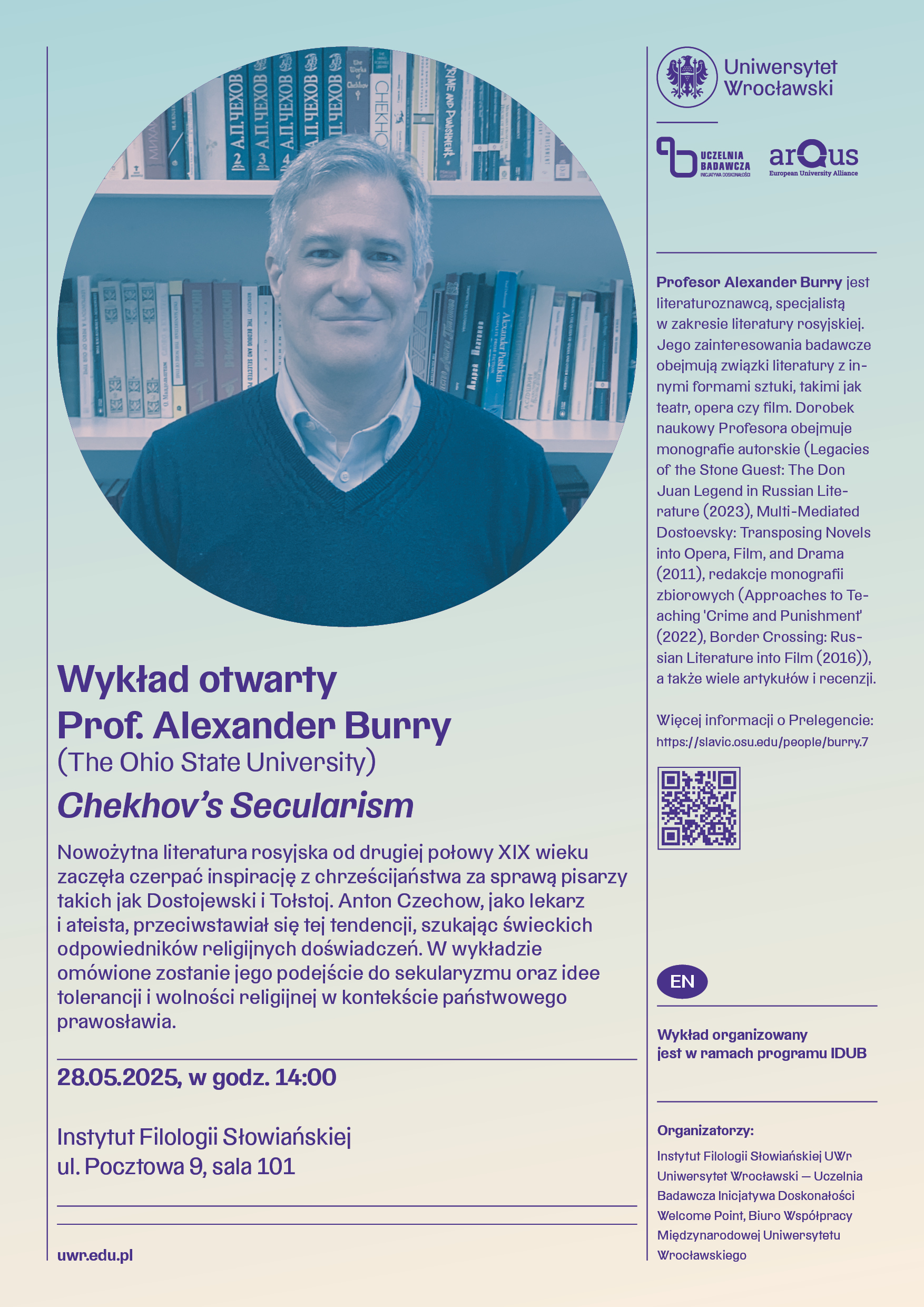
Zapraszamy na wykład prof. Alexandra Burry’ego
Instytut Filologii Słowiańskiej UWr zaprasza na wykład profesora Alexandra Burry’ego (Ohio State University) pt. „Chekhov’s Secularism”, który odbędzie się w środę 28 maja o godzinie 14.00 w IFS (sala 101, ul. Pocztowa 9). Wydarzenie jest organizowane w ramach programu IDUB.
Sylwetka prelegenta: https://slavic.osu.edu/people/burry.7
Abstrakt: Although Russia joined the West in creating a body of secular literature beginning in the eighteenth century, its literature immediately preceeding Anton Chekhov’s career was dominated by two writers, Fyodor Dostoevsky and Lev Tolstoy, who deliberately stretched the boundaries of realism so as to not merely make Christianity a primary theme but also describe states of religious epiphany in their novels. As a doctor, scientist, and non-believer as well as a writer, Chekhov devised several approaches to counter this trend. I will examine three examples of his secularism. First, his attempt to replace religious revelation with a non-religious, nature-oriented equivalent can be seen in his 1899 story “The Lady with the Little Dog,” in which the hero Gurov looks out on the Oreanda in Yalta, in a passage that recalls Raskolnikov gazing on the Irtysh River before his religious epiphany in Crime and Punishment, but instead experiences a sense of the natural world’s persistence after his death. In his 1897 play Uncle Vanya, Chekhov similarly creates a character, in Dr. Astrov, who plants trees and fights deforestation in an attempt to create a secular “afterlife” in which he will be remembered as having done good. Lastly, the story “Rothschild’s Violin” (1894) explores the idea of secularism in light of different faiths in the Russian Empire, as Yakov Ivanov, a Christian coffin-maker on the point of dying, leaves his prized violin to the Jewish musician Rothschild, with whom he had previously fought bitterly. Thus, Chekhov explores two different aspects of secularism: non-religious equivalents for religious states and the coexistence of different approaches to faith in an empire that enforced Eastern Orthodoxy as the official religion, thus gesturing toward ideas of religious freedom that had at that point achieved greater acceptance in the West.
Serdecznie zapraszamy!
